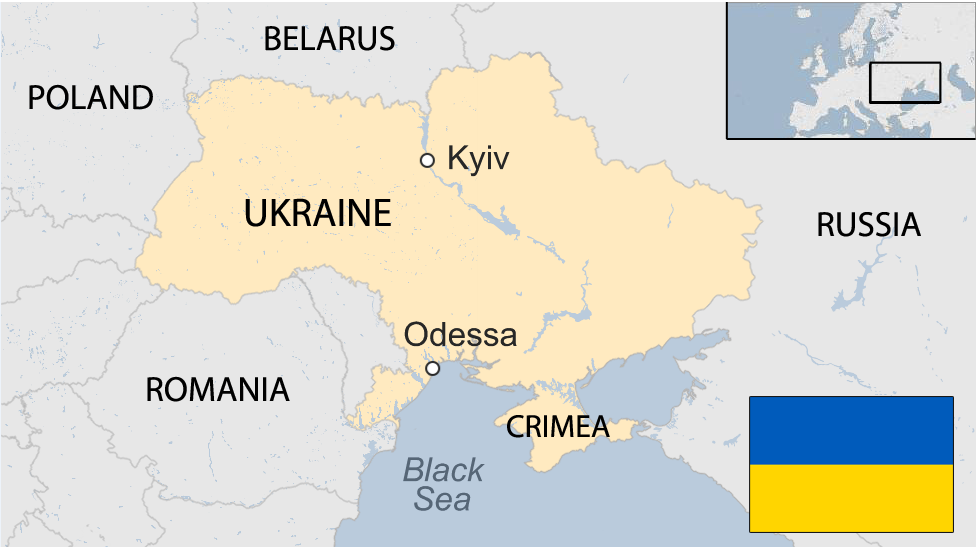Russia urged Kiev to delay key EU deal - Ukrainian PM
- Published
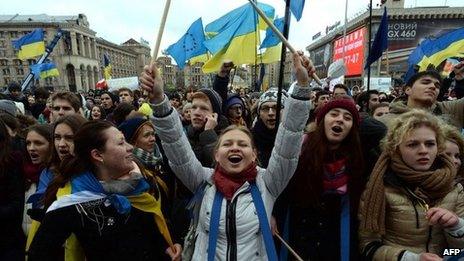
Protesters say their rallies will continue until Kiev signs the deal with the EU
Russia had urged Kiev to delay signing a key deal with the EU, Ukraine's prime minister has admitted, as mass protest rallies continue across the country.
Mykola Azarov said Moscow had offered to hold trilateral talks on the issue, without giving "any ultimatums".
Kiev last week put on hold the association and free trade deal with the EU, prompting Brussels to accuse Moscow of exerting pressure on Ukraine.
The move triggered huge pro-EU protests in Kiev and other Ukrainian cities.
Russian President Vladimir Putin has denied putting any pressure on Kiev, accusing instead the EU of "blackmailing" Ukraine into signing the agreement.
'Battlefield' alarm
Speaking to reporters in Kiev on Tuesday, Mr Azarov acknowledged that Russia had suggested "to delay signing the treaty and to conduct negotiations" between Kiev, Moscow and the EU.
He said Ukrainian President Viktor Yanukovych would still attend this week's EU summit in Vilnius, Lithuania, to discuss the possible consultations with Brussels and Moscow.
It had been originally planned that Ukraine would sign the treaty with the EU at the 28-29 November summit.
Mr Azarov said such three-way talks would be in the best interests of Ukraine: "We absolutely do not want to be a battlefield between the EU and Russia. We want to have good relations with both the EU and Russia."
He also added that separate "road-map" talks with Russia aimed at reviving economic ties would start next month and no agreement had been finalised on possible new financial support from the Kremlin.
Meanwhile, President Putin said it was solely up to Ukraine whether to sign or not the agreement with the EU.
During a visit to Italy, Mr Putin also urged EU leaders to refrain from "sharp words" on the issue.
New revolution?
Ukraine's government said last Thursday it was halting preparations for signing the deal with the EU, amid concerns this would have a negative impact on Kiev's trade relations with Russia and cause mass job losses as a result.
Moscow had earlier warned it would be forced to defend its market by raising custom duties on Ukrainian goods.
In a statement on Monday, President Yanukovych said he had been forced to halt treaty preparations by economic necessity and the desire to protect those "most vulnerable".
Tens of thousands of protesters have been taking to the streets of Ukraine's major cities since last week.
Yulia Tymoshenko's daughter Eugenia said her mother was going on hunger strike to support the protesters
On Sunday, more than 100,000 people rallied in the capital, Kiev, in the largest show of public discontent since the Orange Revolution in 2004 - which saw Mr Yanukovych ousted and a Western-leaning government brought to power.
Mr Yanukovych returned to power in the 2010 presidential election.
Solidarity rallies have also been staged in a number of European capitals, the US and Canada.
Protesters are accusing the president of bowing to growing pressure from Mr Putin, who wants Kiev to join the Moscow-led Customs Union. The grouping also includes Belarus and Kazakhstan.
Meanwhile, prosecutors in Kiev have opened an investigation into an attack on Monday by protesters in European Square against a security services bus.
In a statement, the security service said staff on board were carrying out security measures including checking for radio channels that might be used to detonate bombs.
Protesters apparently thought they were using monitoring equipment to eavesdrop.
They attacked the bus, seizing equipment and using tear gas, injuring staff inside the vehicle, the statement said.
It also said members of parliament were involved in the clashes.
In a separate development, former Prime Minister Yulia Tymoshenko, one of the leaders of the Orange Revolution who was jailed in 2011 for abuse of power, said on Monday she was starting a hunger strike in solidarity with the protesters.
- Published26 November 2013
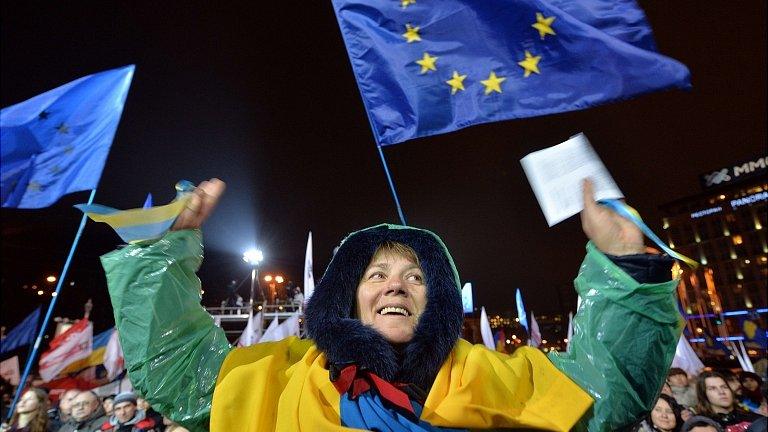
- Published10 December 2013
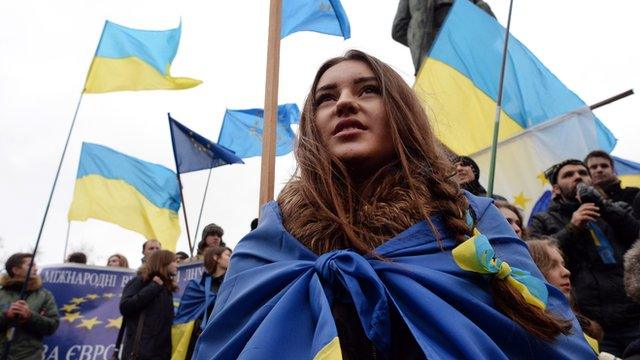
- Published26 November 2013
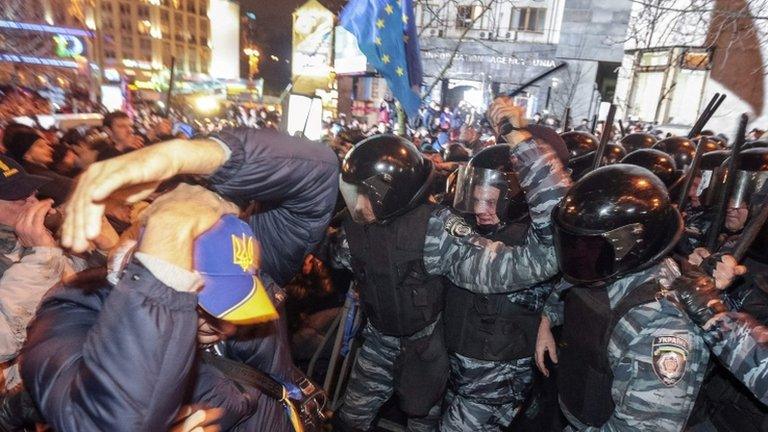
- Published25 November 2013
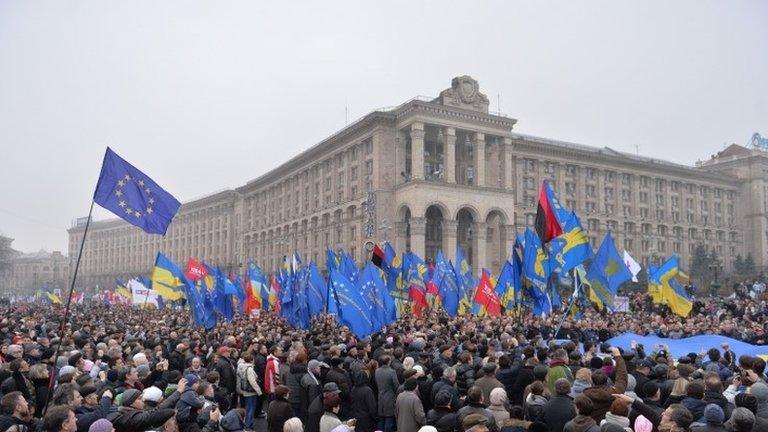
- Published25 November 2013
- Published27 January
